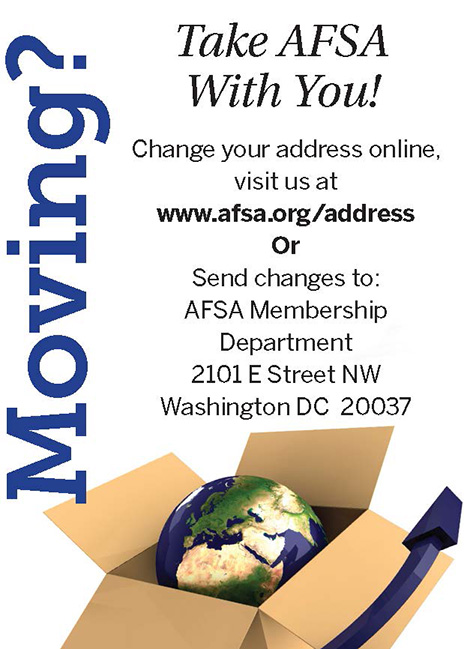The State of Dissent in the Foreign Service
Members of the Foreign Service regularly grapple with the professional and moral dilemma of dissent.
BY HARRY KOPP
The Blood Telegram
The first message in the Dissent Channel came from the consulate general in Dacca, East Pakistan, now Bangladesh.
In March 1971, the central government’s armed forces began a wave of killings of Bengalis in East Pakistan in what proved to be a vain attempt to suppress separatist sentiment in that distant province. The campaign horrified the American consul general, Archer K. Blood, who sent a series of cables urging Washington to take a public stance condemning the atrocities.
Unknown to Blood, or to Secretary of State William P. Rogers, National Security Adviser Henry Kissinger was using Pakistan as the go-between in the still-secret U.S. opening to China. For that reason, among others, Blood’s appeals were ignored.
On April 6, 1971, Blood’s staff sent a message via the Dissent Channel saying that America had to act “to salvage our nation’s position as a moral leader of the free world.” Consul General Blood did not sign the dissent, but appended a note endorsing it.
Kissinger believed the message was written to be leaked, and said that Secretary Rogers thought it “outrageous” that his diplomats were writing petitions instead of reports. Blood was recalled and his career thereafter stunted. Like his earlier messages, the dissent had no effect on U.S. policy.
AFSA gave Archer Blood its Christian Herter Award for Constructive Dissent in 1971. To his credit, Secretary Rogers presided at the ceremony (“I think he was a little embarrassed,” Blood said later.) Howard Schaffer, one of the signers of the dissent message, became ambassador to Bangladesh in 1984 and served until 1987. In 2015, U.S. Ambassador Marcia S. Bernicat presented an official copy of the Blood telegram to the government of Bangladesh, where Archer Blood is remembered and revered as a friend of the country.
—H.W.K.
It is hard to believe now, but there was a time, still within living memory, when presidents talked like this: “Let every public servant know … that this administration recognizes the value of dissent and daring—that we greet healthy controversy as the hallmark of healthy change. Let the public service be a proud and lively career.”
That was President John F. Kennedy on Jan. 30, 1961, in his first address to Congress on the State of the Union. Then just 10 days in office, Kennedy sought to dispel the stifling air of suspicion and conformity in which the loyalty oaths, security investigations and anti-communist hysteria of the previous decade had smothered the federal workforce.
For the Foreign Service and the Department of State, Kennedy’s words were especially welcome. Under pressure from Senator Joseph McCarthy and his supporters, the State Department in the 1950s conducted a purge of employees who had expressed nonconforming views, conveyed unwanted information, engaged in unconventional behavior or associated with someone who had. Hundreds of civil servants and Foreign Service officers were fired or marginalized, their careers and reputations destroyed.
In reaction, the Foreign Service took on a culture of timidity and self-censorship that recoiled from dissent and sought not to give offense or attract attention. The culture put at risk each step in the sequence of honesty on which sound policy formation depends: candor in reporting, analysis untainted by predetermined outcomes and confidential debate of policy options.
An April 1961 FSJ editorial, "Daring and Dissent," described what proved to be a recurring dilemma. The FSO, the writer warned, “finds that a calling which has claimed his abiding loyalty … is being assailed and degraded by irresponsible demagogues. He discovers that what he may report [may] be distorted and publicly held against him. He learns that his associations can be suspect.” Each officer faced a choice: restrict his reporting to “what will harmonize with the temper of the times,” report honestly and place “his career and his reputation” at risk, or simply resign.
Officers for the most part followed the safest path. Hannah Gurman, author of a study on dissent in the Department of State (The Dissent Papers, Columbia University Press, 2012), wrote of this period: “Fear … took hold of many Foreign Service officers,” who adopted “a strategy of hibernation.”
Professional Dilemmas of the Vietnam Years
In Vietnam the sequence of honesty at the heart of the policymaking process broke down at its starting point, leading to erosion of discipline and rising levels of dissent. “Many FSOs,” wrote retired ambassador Kenneth Quinn in the September 2014 FSJ, “had considerable difficulty getting their reporting telegrams approved and sent if they dared to express any doubts about U.S. policy.”
The problem ran deeper than policy: it went to basic information. Many officers recalled experiences like that of Lars Hydle, a young FSO at the Saigon embassy in 1967. In his 1994 ADST oral history project interview, Hydle said that the political section “was basically trying to make the South Vietnamese government look as good as possible. … Reports were continually massaged and changed around to make them seem less bad than they were.” Negative reports, his superiors warned him, had to be suppressed, lest they be leaked to the press “and used against the policy.”
Of course this attitude exacerbated the problem it meant to solve. Journalist David Halberstam said in his 1950 bestseller, The Best and the Brightest, that the inability to get candid reporting to policy levels through official channels encouraged leaks to reporters like him, who could get the news out through the media.
The U.S. government did not condone candor in reports from Vietnam. By denying itself honest reporting, the administration confirmed its preconceptions and magnified its mistakes.
As Ambassador Chas Freeman wrote in Arts of Power: Statecraft and Diplomacy (USIP, 1997): “Governments that condone candor will get it. Those that don’t, won’t.” The U.S. government did not condone candor in reports from Vietnam—not from the Foreign Service and not from the military, whose officers faced pressure to produce data that showed progress in the conduct of the war. By denying itself honest reporting, the administration confirmed its preconceptions and magnified its mistakes.
For many Foreign Service officers, the clash between honest reporting and Service discipline created a professional, if not a moral, dilemma that could not be satisfactorily resolved. According to retired FSO David Jones, writing for the April 2000 Journal, “in 1968 alone 266 Foreign Service officers, 80 percent of them junior officers, resigned.”
The frustration and anger that many junior Foreign Service officers felt about Vietnam were very much a part of “the temper of the times.” In April 1970, some 250 State Department employees, including 50 Foreign Service officers, sent Secretary of State William P. Rogers a statement opposing the just-launched U.S. bombing campaign in Cambodia. President Richard Nixon’s impulse was to “fire the sons of bitches,” but the department resisted, the impulse passed and the signers kept their jobs.
The Dissent Channel Is Born
The Cambodia statement led the department to establish a “dissent channel,” to give its employees (including those at USAID) a way to communicate dissenting views on substantive policy, in confidence and without fear of retaliation, to senior officials who were required to respond. The Dissent Channel was meant to keep dissent out of the press; but its use, then as now, was intended for individual employees engaged with an issue, whose views could not be transmitted through regular channels because of what the Foreign Affairs Manual calls an “inability to resolve concrete differences of opinion.”
Hundreds of messages, on average about 10 a year, have passed through the channel since its inception, but only a handful have had an effect on policy. “The Dissent Channel,” says Hannah Gurman, “made it possible for the State Department to formally encourage dissent, while … deflating the most serious threat posed by internal dissenters,” namely, public repudiation of administration policy.
The Foreign Service and the Department of State do not exist in a social vacuum.
Had it been in place at the time, the Dissent Channel would not have contained the Cambodia statement. That statement had no precedent in the Department of State, but it had plenty of precedent in the country at large. Fury over Vietnam swept across the country in that spring of 1970: protest marches and demonstrations in more than 200 cities and towns; violence at Columbia and Syracuse universities; a march on Washington; construction workers taking clubs to demonstrators on Wall Street; and the fatal shooting by National Guardsmen of four student protesters at Ohio’s Kent State University.
The Foreign Service and the Department of State do not exist in a social vacuum. The dissent on Cambodia would not have taken the form that it did, and would probably not have been offered at all, in the absence of this national wave of protest. The statement was less a reasoned argument for the losing side of an in-house debate (which the Dissent Channel was structured to protect) than a political statement that was a product of its time.
The Sequence of Honesty
In the run-up to the 2003 Iraq War, too, the sequence of honesty was thwarted from the beginning. On the central question of Iraq’s possession and development of biological, chemical and nuclear weapons, American leadership discounted or disbelieved reporting by United Nations inspectors, crediting instead information provided by an Iraqi defector and other unreliable sources. “The reports were of remarkable clarity,” said Marc Grossman, then under secretary of State for political affairs, in his 2006 ADST oral history interview. “Maybe we should have thought, ‘How can they be so exact, so precise?’ And it was all false.” Ambassador Joseph C. Wilson IV, who had served in both countries, investigated an alleged sale of uranium ore by Niger to Iraq. “Intelligence related to Iraq’s nuclear weapons program,” Wilson wrote in a July 2003 New York Times op-ed, “was twisted to exaggerate the Iraqi threat.”
A refusal to accept as valid information that challenged assumptions or disproved hypotheses left facts in dispute. With no accepted body of fact to build on, analyses could be shaped to fit leadership preferences. Foreign Service officers may have been complicit in the erosion of honesty. In 2008, AFSA President John Naland wrote: “Have some senior career officials ‘sold their souls’ over Iraq … to advance their careers? I believe they have.”
Despite the strategic failures of the Iraq war, and the collapse of the justification offered for its prosecution, Foreign Service dissent from U.S. policy remained at a low level. In contrast to the hundreds who resigned during Vietnam, the number of resignations directly related to the war in Iraq was just three—Ann Wright, John Brady Kiesling and John Brown— all of whom resigned at the war’s outset, in the spring of 2003.
Service discipline prevailed. The department threatened to pursue directed assignments but did not need to resort to ordering members of the Service into the region. Over the decade from 2003 to 2012, about 40 percent of the Service had tours of 90 days or more in Iraq or Afghanistan, all as volunteers. Many had misgivings—Secretary of State Condoleezza Rice wrote in her memoirs that members of the Service “did sometimes appear less than enthusiastic about the president’s policies”—but public dissent was rare.
In the past 18 months, State Department dissents have twice become public and earned headlines.
The Temper of the Times
Certainly the temper of the times had something to do with the relative lack of dissent. The street and campus protests, the civil unrest and the violent political movements of the Vietnam era were absent. No senior official resigned as a matter of principle, as Under Secretary of State George Ball had done over Vietnam in 1966. Dissent was a lonely business, with no leader and no mass following. It held little attraction.
In the past 18 months, State Department dissents have twice become public and earned headlines. In both cases, social media encouraged mass participation, and mass participation makes confidentiality hard to maintain. A July 2016 Dissent Channel memo on Syria, signed by more than 50 State Department officers, called for “a more militarily assertive U.S. role.” The memo leaked in draft to the press, which published it without the signatures.
More dramatically, State Department officers reportedly numbering more than 1,000 signed a Dissent Channel message at the end of January 2017, protesting the new administration’s executive order, “Protecting the Nation from Foreign Terrorist Entry into the United States,” commonly called the travel ban. The New York Times published a version of the memo, without signatures, and said it had circulated “like a chain letter—or a viral video.” White House spokesman Sean Spicer delivered the administration’s reaction: “Those career bureaucrats have a problem with it? They should either get with the program, or they can go.”
Technology makes the collection of large numbers of signatures possible, but dissent messages change their character when signed by a crowd and publicized. The leaking of these memos, even before they were delivered, shifted their audience from the senior officers to whom they were ostensibly addressed to the public at large. The memos became political statements, valued chiefly for their bulk (1,000 signatures!) and used as ammunition in partisan warfare. A memo signed by 1,000 people, or even 50, is sure to leak, as texts are shared online. Without confidentiality and discretion, there can be no trust.
State Department diplomats concerned about the politicization of their profession should be wary. The times are ferociously, vituperatively partisan. Challenging administration policy in public means entering the political arena, where public servants are ill-equipped to play, and where they will almost surely lose. For the good of the Service as an institution, dissent must remain confidential.










